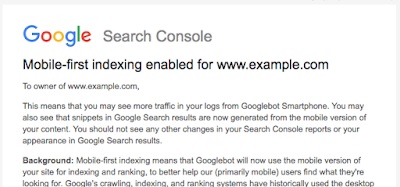Google’s Core Algorithm Update

In March there were a couple of significant announcements made by Google which are worth discussing in more detail. These are:
Core Algorithm Update
Although Google makes daily changes to its algorithm, most of these changes generally have a very low impact on search results. Most people would never even notice the effects of these updates.
However, this month Google confirmed that it has made a significant adjustment to its core algorithm. It’s rare for Google to confirm that a core update has taken place, but the result of the update on the 8th/9th of March had a significant effect on some websites and it seems Google saw the need to confirm that a “broad core update” had been rolled out.
What’s interesting about this update, compared to previous confirmed updates, is this public comment from Google:

And then followed up by this one:

“There’s nothing wrong with pages that may now perform less well” and “benefiting pages that were previously under-rewarded” and “There’s no fix” and “Over time, it may be that your content may rise relative to other pages”.
So what does this mean?
Historically, updates such as Panda and Penguin have always demoted websites with low quality content or toxic backlinks. However, this core update appears to be working the opposite way and is instead rewarding websites that deserve to rank better, hence the “no fix” comment.
However, the sentence of most significance is probably this one:
“Over time, it may be that your content may rise relevant to other pages”
Over time! In other words, there is “no quick fix”.
What this update appears to have done is adapt the core algorithm in line with artificial intelligence (AI) data that Google has been exponentially accumulating over the last couple of years, since the integration of “RankBrain” into its ranking algorithm.
Google’s AI data is powerfully analysing enormous datasets of user behaviour and the insights from this data has enabled the core algorithm to be adapted to better focus on useful, relevant, correct, engaging and valuable content. Rewarding engaging content is what this update appears to be focused on.
The reason why there is no quick fix is because in order to improve rankings it is necessary to satisfy Google’s AI that a page is better, more relevant and more engaging than the others in the search results. It takes time for this data to accumulate and for the benefit to be applied to the page.
Therefore, the focus has to be, as Google puts it:
“to remain focused on building great content”
Apart from that, some additional insights from this update include the following:
• Avoid competing pages on a website
• Avoid poor internal website structure
• Ensure pages are engaging
• Ensure pages are completely relevant to the search query
• Ensure pages have accurate information and data
• Ensure pages have “high value”
• Ensure pages load quickly
• Ensure pages are considerably better than the competition
There may not be a quick fix, but there’s always a fix.
Mobile-First Index Rolling Out
At the end of March, Google announced that after 18 months of testing, the mobile-first index is now slowly being rolled out to all websites.
A notification will appear in Google Search Console when a website is migrated to the new index, as such:

The move to a mobile-first index is in line with the majority of searches now being made on smartphone devices.
Google’s intention is to not affect rankings with this update, hence the slow rollout, and for most responsive websites that will be the case. However, for mobile websites that offer a different crawl path to search engine crawlers or different content when compared with the desktop version, they may see a negative effect from this change.
We have worked with our clients for many months to ensure there is no impact from this change and we continue to monitor results and the transition to the mobile-first index.
We will notify clients when their websites are added to the mobile-first index and will monitor their subsequent progress in search as a result of this. We don’t anticipate any impact in rankings for our clients.

